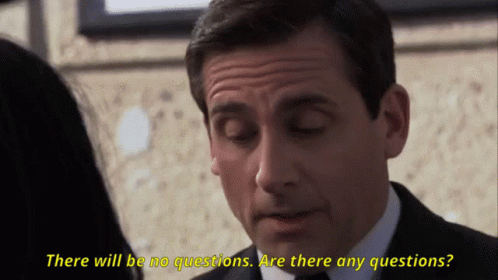Be sure to set the table first. Prior to any interview, candidates should be prepared and have done their homework on the company, the hiring manager and research any press releases or financial information they can find. Next, dress the part and look professional. For entry level positions and roles requiring under five years of experience, a step up from business casual will do just fine.
The best interviews are the ones with dialogue between the candidate, sprinkling in their own questions throughout the conversation. Remember, this not an interrogation. Chances are if it feels like a colonoscopy or trip to the dentist, then the interviewer is doing it wrong. My best advice is work to build rapport from the onset.

You are interviewing them too
As a candidate you are looking for flags, green or red. Now is your chance to identify potential risks rather than after you begin your new role. You can start by asking:
- Demonstrate you did your homework and build rapport by asking a question about why the interviewer joined the company a few years ago or acknowledge where they went to school or what their degree is in.
- Why is this position open? If the prior candidate quit, can the interviewer share why?
- What are two or three really important attributes a successful candidate should have in this role? Again, you are looking for potential red flags. The flexibility to stay late and get stuff done or work weekends are bad potential answers.
- What is the hardest part about this role? Getting along with the hiring manager or working on a stressed out team are examples of red flags.
- What is the best thing about working for this company (or you the hiring manager)? Or, if you are feeling it – why are you awesome to work for? You should be able to spot a genuine answer from a person that genuinely likes their job and company.
- What can you tell me about the team I will be working with? Throwing teammates under the bus or complaining about unreal expectations from “corporate” are some obvious red flags.
- A tricky question is, what will a candidate have to do to get promoted and how long would that take? Be careful not to come off like you have this one in the bag or presumptuous that you are going to be the greatest candidate the company has ever seen.
- Another optional question is, if I did end up working here what advice would you give me to succeed?
Tip: Ask your questions, shut up, and listen to the answer. During the time that you’re listening, allows you the chance to breathe, gather your thoughts and take a bit of a mental break. Just as important are the questions you don’t see above – do not ask the hiring manager about compensation, PTO or benefits in the initial interview. And God forbid, do not ask if the company does background checks or drug screens. If the hiring manager falls in love with you as a candidate you can get into these details following.
 Bill Wednieski is the Managing Director for The Headhunters. Learn more here.
Bill Wednieski is the Managing Director for The Headhunters. Learn more here.

